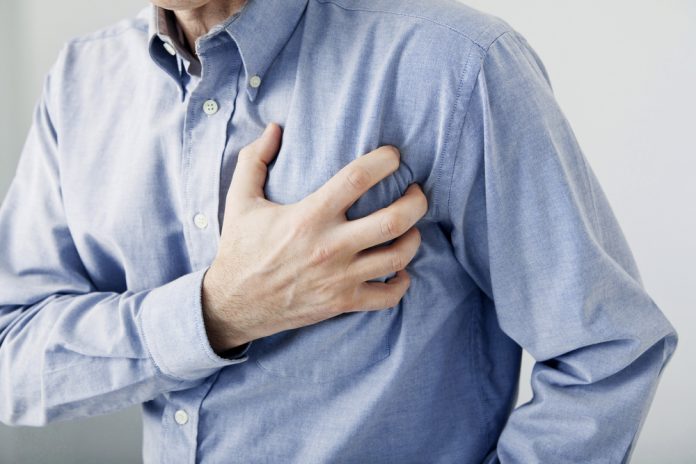When it comes to signs of heart attack, and especially heart attack symptoms in women, recognizing the warning signs early is crucial. Receiving care in a timely manner is important to treating heart attack symptoms and preventing poor outcomes.
Keep reading to find out the 10 symptoms of a heart attack you should never ignore, including what these symptoms may look like for women versus men.
Symptoms of A Heart Attack
Myocardial infarction, known more commonly as a heart attack, can be scary to think about. The condition happens when part of your heart isn’t receiving enough blood.
You can increase your chances of surviving a heart attack by ensuring emergency treatment starts as soon as possible. While it is an emergency situation, knowing the signs and symptoms in advance can literally save a life.
The term “silent heart attacks” has been coined to communicate that symptoms of a heart attack can be more subtle. Signs of a heart attack may only be mild, but it is just as important to act as quickly as if they were more dramatic.
Regardless of the symptoms you may experience, the National Institutes of Health provides a heart attack wallet card to keep on hand at all times. Not only can it help you decide when to call 9-1-1, but it also lists potential heart attack symptoms and has a space for you to write important emergency contact and healthcare provider information.
Heart Attack Symptoms In Women
The American Heart Association is quick to remind women that their symptoms may differ from how a heart attack is typically portrayed in the media or in men. While chest pain or discomfort is the most common heart attack symptom for both men and women, other signs of a heart attack that women may be more likely to experience include:
- Heart palpitations
- Nausea or vomiting
- Pain in the arms, jaw, ribs, shoulder, or upper back
- Shortness of breath
Studies show that women are actually more likely to experience physical symptoms. However, they are often diagnosed further along during the course of a heart attack because their symptoms can appear different from men. Women have smaller hearts, which may explain the differences in how symptoms exhibit.
Whether you are a man or woman, research shows that keeping track of symptoms can improve the care of the patient and outcomes.
10 Signs of Heart Attack To Never Ignore
The following signs and symptoms may be reason enough to head to an emergency room.
1. Shortness Of Breath
Shortness of breath, accompanied by chest pain or not, can signal trouble. People generally describe shortness of breath as “feeling like you can’t breathe.” If it lasts more than a few minutes, be sure to take emergency measures. This symptom is also more common in older adults.
2. Chest Pain
While probably the most cliche or common symptom, chest pain should always be taken seriously. The sooner your report this symptom, the better.
3. Discomfort in the Center of the Chest
Similar to chest pain, a sense of discomfort in the center of the chest may be cause for concern. If the discomfort lasts more than a couple minutes, or if it comes and goes in waves, take note. Feelings of pressure, squeezing, or fullness can all be considered discomfort.
4. Discomfort and Pain In Other Areas
Discomfort in the center of the chest isn’t the only reason for alarm. The following areas may also experience discomfort if you are having a heart attack:
- Arms (one or both of them)
- Back
- Jaw
- Neck
- Shoulders
- Stomach (typically upper, around the belly button)
5. Feeling Dizzy, Lightheaded, or Faint
Suddenly feeling dizzy, faint, or light-headed may mean a heart attack is coming on. Blood helps to deliver the oxygen and nutrients that keep you moving, so when blood is blocked, dizziness and possible fainting may follow. If the lightheadedness persists, it may be time to call in emergency services.
6. Nausea or Vomiting
Stomach pains during a heart attack exist on a scale. Signs can be as unassuming as “feeling sick to the stomach”, or they can escalate to nausea and vomiting in the extreme. Heartburn or indigestion may also warrant a level of worry.
7. Jaw, Neck, or Back Pain
Everything in the body is connected via a complex system of blood vessels, so it makes sense that during a heart attack pain can be felt in the areas around the heart. In particular, you may feel discomfort in your back, neck, jaw, or shoulders,
8. Breaking Out in a Sweat
Sometimes, breaking out in a cold sweat can be a sign of a heart attack. Sweating or fluid retention may signal that the heart is failing and blood isn’t pumping properly. Especially if the sweating can’t be attributed to other causes, it may be time to worry.
9. Unusual Tiredness or Fatigue
Thought to be more common in women, a feeling of unusual tiredness can be related to an impending heart attack. Fatigue can also be a common symptom of a related condition called heart failure, especially in women. This is an understandable symptom, as your body is primarily focused on keeping you alive.
10. Nervousness or Mood Shifts
It may seem like a more subtle symptom, but a sudden change in mood or rise in anxiety may mean a heart attack is happening. Significant changes in blood pressure, which can happen during a heart attack, may exhibit a sense of nervousness in the body.
In Summary On Heart Attack Signs and Symptoms
The bottom line? When in doubt, call 911. In any case, being able to sight common signs and symptoms of a heart attack can save a life.
References:
Fang J, Luncheon C, Ayala C, Odom E Loustalot F. Awareness of Heart Attack Symptoms and Response Among Adults- United States, 2008, 2014, 2017. MMWR Morb Mortal Wkly Rep. 2019;68(5):101-106.
Heart attack. Mayo Clinic. Published May 2022. https://www.mayoclinic.org/diseases-conditions/heart-attack/symptoms-causes/syc-20373106.
Heart Attack, Stroke and Cardiac Arrest Symptoms. American Heart Association. https://www.heart.org/en/about-us/heart-attack-and-stroke-symptoms.
Warning Signs & Symptoms of Heart Attack and Stroke. American Heart Association. https://www.goredforwomen.org/en/about-heart-disease-in-women/signs-and-symptoms-in-women.
Warning Signs of a Heart Attack. American Heart Association. https://www.heart.org/en/health-topics/heart-attack/warning-signs-of-a-heart-attack.
What is a heart attack? Centers for Disease Control and Prevention. Published July 2022. https://www.cdc.gov/heartdisease/heart_attack.htm.






